Have you ever woken up to a pool of tap water on your kitchen floor?
If yes, you may have a leaking faucet. Tap leakage is an issue that many Australian residents face throughout the year. Though tempting, ignoring these tap leaks can result in more significant plumbing problems and higher water bills.
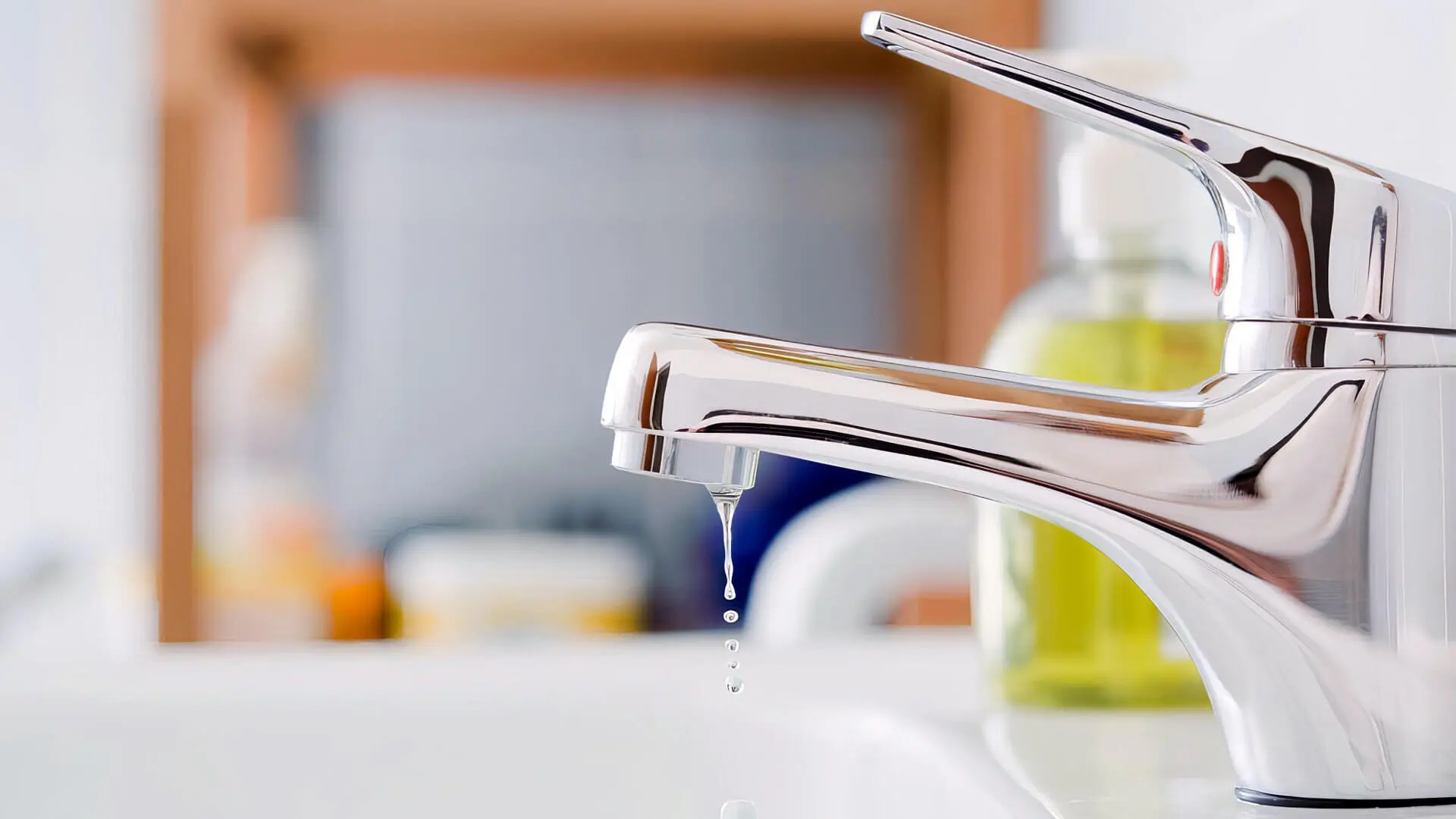
But before considering possible solutions, let us look at the most common causes of leaky taps. Knowing what caused the leak can help you better understand the situation and find a solution.
8 Most Common Causes Of Leaky Taps
1. Unsecured Parts
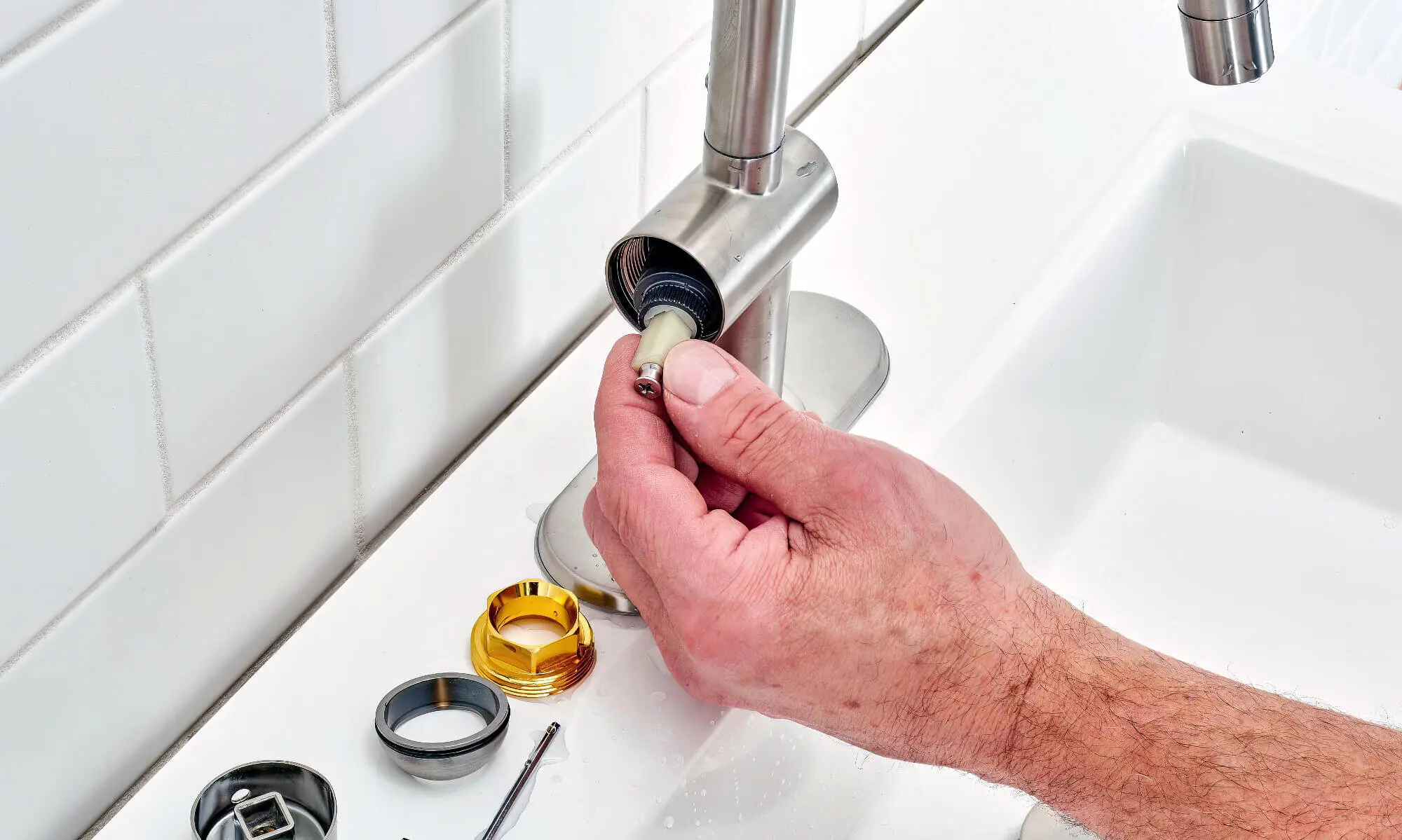
Sinks and taps get a lot of use every day, and that can cause some parts to loosen or wear out over time. This often happens because of wear and tear or even if the fixture wasn’t installed quite right. Loose parts, particularly a damaged cartridge, are usually behind a leaking tap.
You might try tightening those loose connections to stop the leak, but they can come loose again. Ball-type taps, in particular, don’t have screws or bolts you can adjust. In such cases, replacing the tap is often the best option.
You can visit your local hardware store or contact a professional plumber to install the new tap and ensure no further plumbing problems. Additionally, you do not have to stress about an increased water bill.
2. Washer Issues
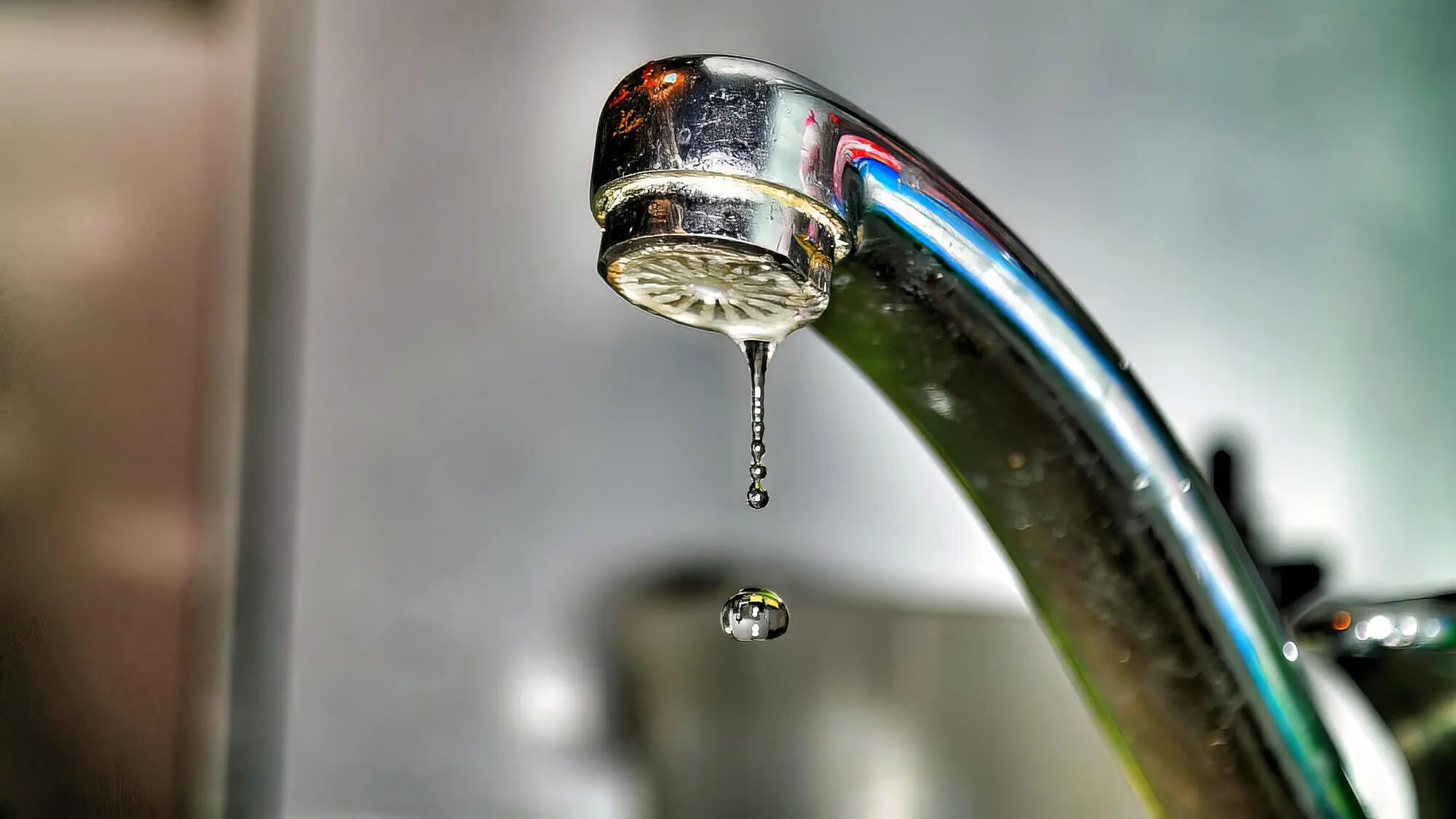
A sink washer is a rubber or metal component that seals any gap in your sink pipes and eliminates the possibility of a leaky tap. When the washer is damaged or worn out, it can lead to dripping taps.
A common cause of metal or rubber washers getting damaged so quickly is the friction caused by constant movements. Apart from daily movement, friction against various parts of the leaking tap can cause the washer to deteriorate over time.
Even if the washer is brand new or has no damage, the gap still leaks, possibly due to improper installation. Washers are critical in avoiding a leaky tap; they do the opposite when installed incorrectly or in the wrong size. This mainly occurs in compression faucets.
You can check your washer to see if it needs to be replaced or if you can install it correctly again.
3. Damaged O-ring
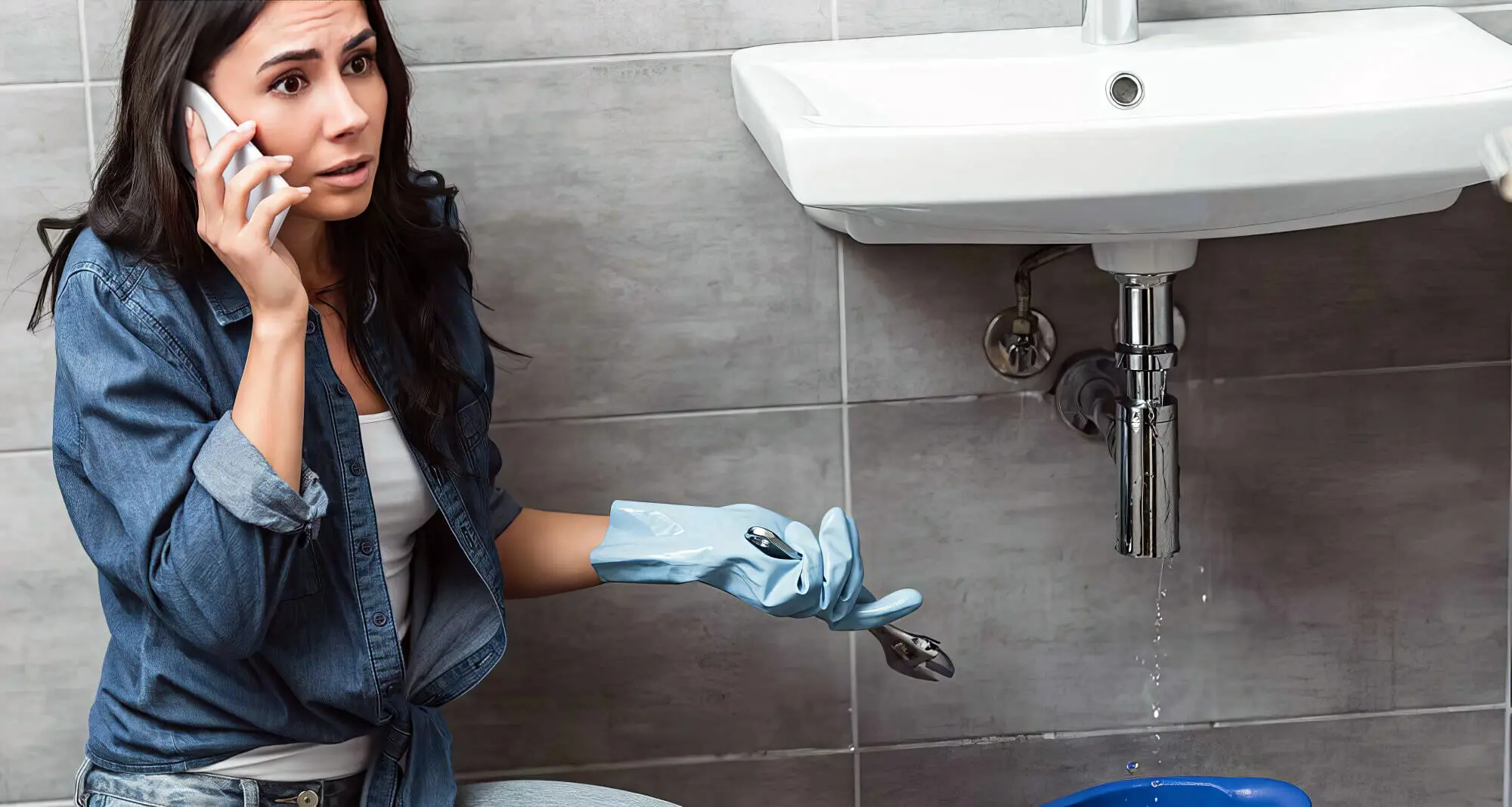
An O-ring is a rubber or metal ball ring/ gasket attached to the brass valve stem to keep the pipes air-tight and sealed, especially in cartridge faucets. A cartridge is a shutoff valve that controls the flow of cold or hot water into the faucet spout.
With constant use, these O-ring gaskets can develop wear and tear, which in turn causes a leaking tap. The most common areas of water leaks from worn-out O-ring damage are the base of the tap body, tap handles, or nozzle.
The damaged O-ring cannot be repaired and has to be replaced immediately. If left unattended, these leaks can promote mould growth, which is unpleasant to the eye and harmful to your health.
4. Damaged Valve Seat
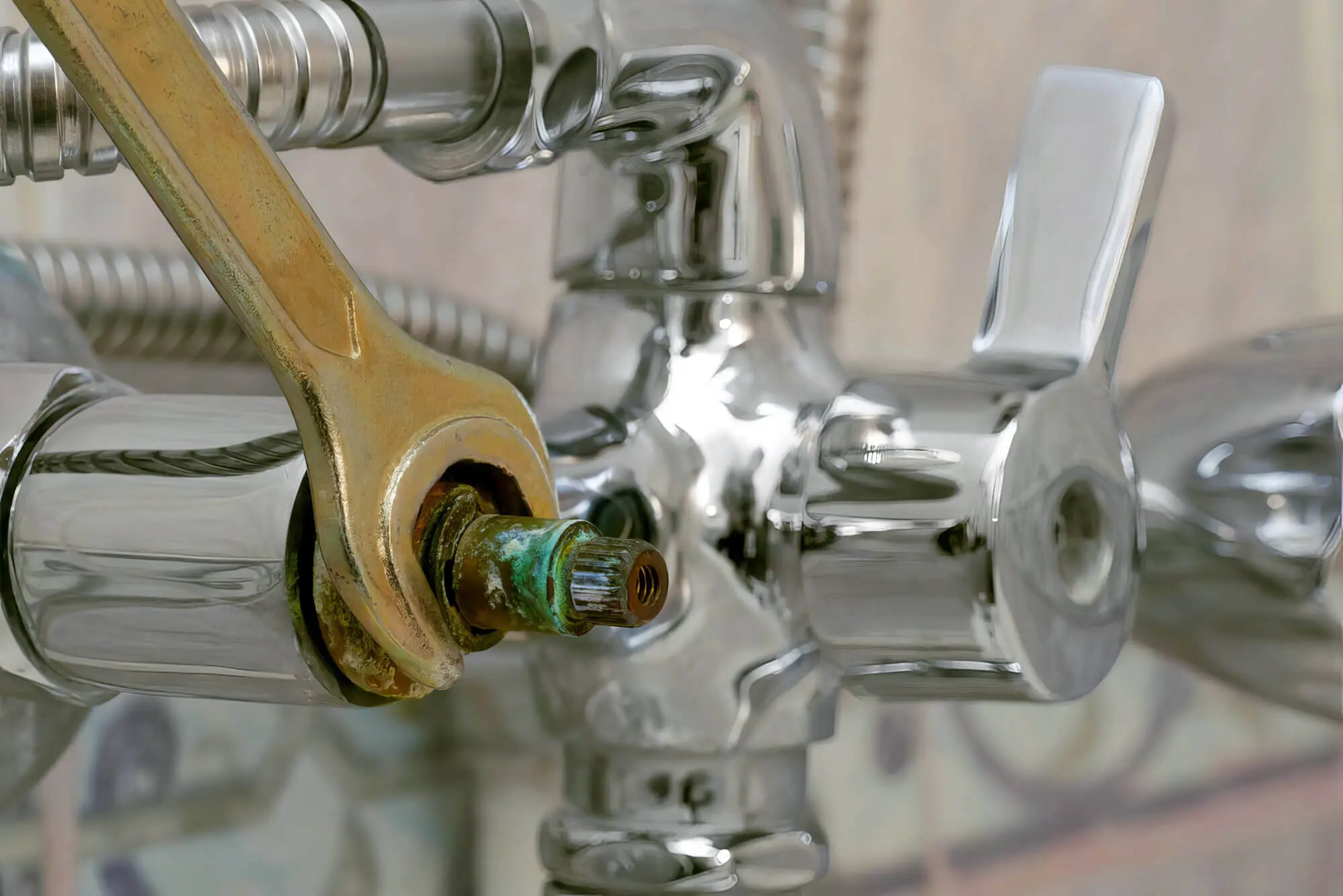
The valve seat connects the water pipe to the tap, ensuring a steady water supply. Over time, minerals in the water can accumulate and cause the valve seat to corrode. This corrosion often leads to dripping, particularly around the spout.
Since water passes through these valves daily, the chances of mineral deposits are pretty high. Besides being corrupted, the valve seat can also develop natural wear and tear, making it less susceptible to leaks.
5. Lime Or Calcium Build-up
Usually, there tends to be a mineral build-up. The lime build-up is usually the scaly, hard deposits that settle on the tap, making it difficult to operate. Since this results in the tap not being opened or closed properly, it can lead to leaky faucets. The lime deposit on the tap prevents you from overcoming the friction and closing the tap.
You can eliminate limescale or even prevent it from happening in several ways. The most common way is to use a vinegar and lemon juice mixture and scrub the surface of the leaking taps. White vinegar is effective at dissolving limescale, and lemon juice has properties that prevent limescale from building up.
6. Poor Sealing
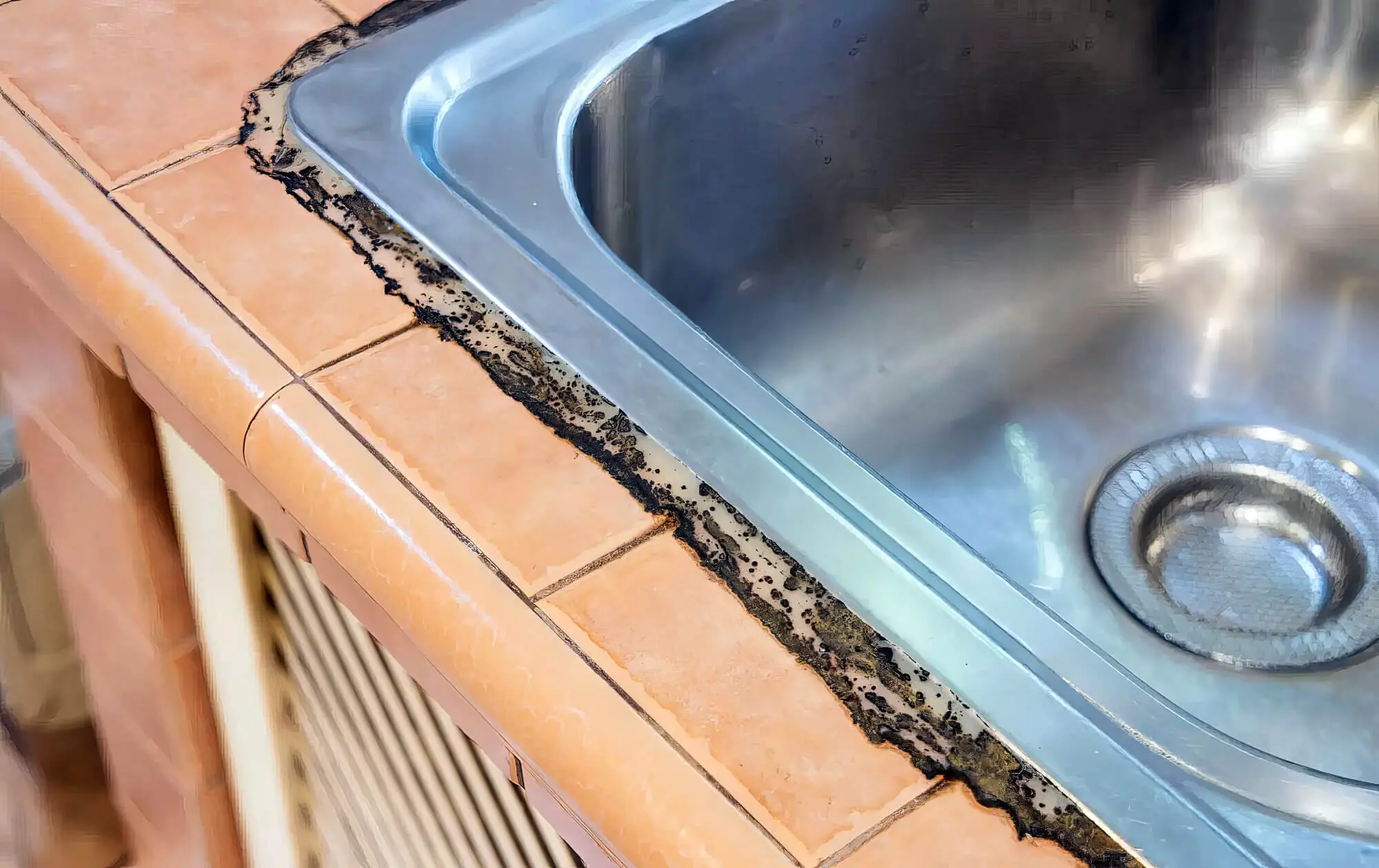
Many modern taps come with inlet seals. These seals help regulate water flow, stopping it completely when the tap is off and allowing it through when turned on.
Like other parts of the faucet, these seals may wear and tear over time due to the high water pressure in the flowing water. When these seals develop scales and sediment, they damage them entirely, often resulting in a leaking tap. The damaged seals do not function optimally, and instead of allowing water to flow freely or stopping when needed, they result in leaky faucets.
7. Damaged Plumbing System
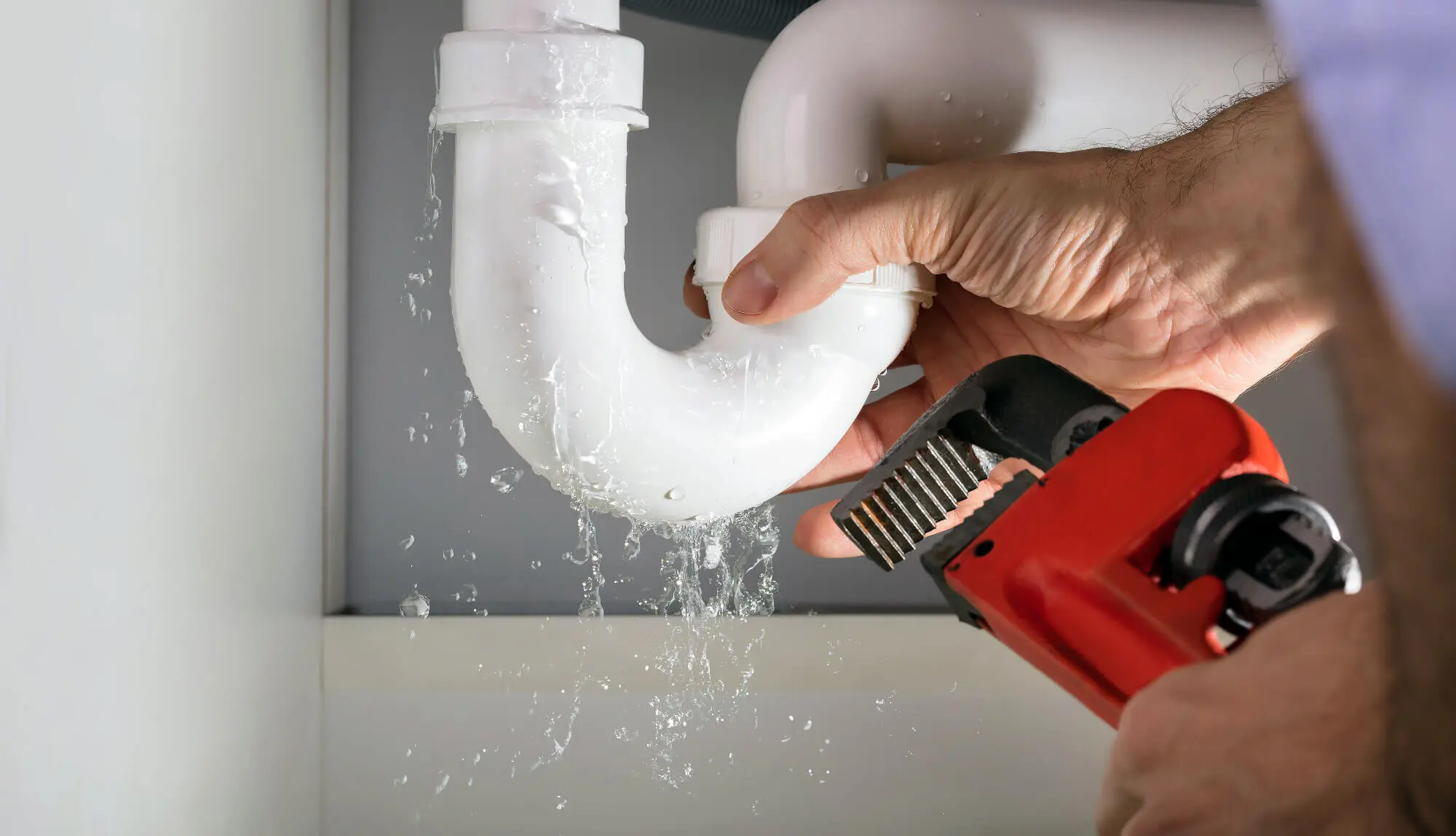
When there is some damage to the plumbing system, it can lead to a dripping faucet. For instance, when the drain pipes break or crack open, it leaves space for the water to flow through, thus causing a leak. The most major plumbing system issue is a broken pipe, which is also the key culprit in uninvited leaks.
Similarly, some cracks in the drain pipes can drop your home’s water pressure. When water flow is slower than intended, it leaks through the faucet.
If you notice that your drain pipes are broken or have cracks, the ideal solution is to repair or replace the existing ones if needed. If both solutions don’t work, calla licensed plumber who can inspect for further damages.
8. The Washer Not Installed Properly
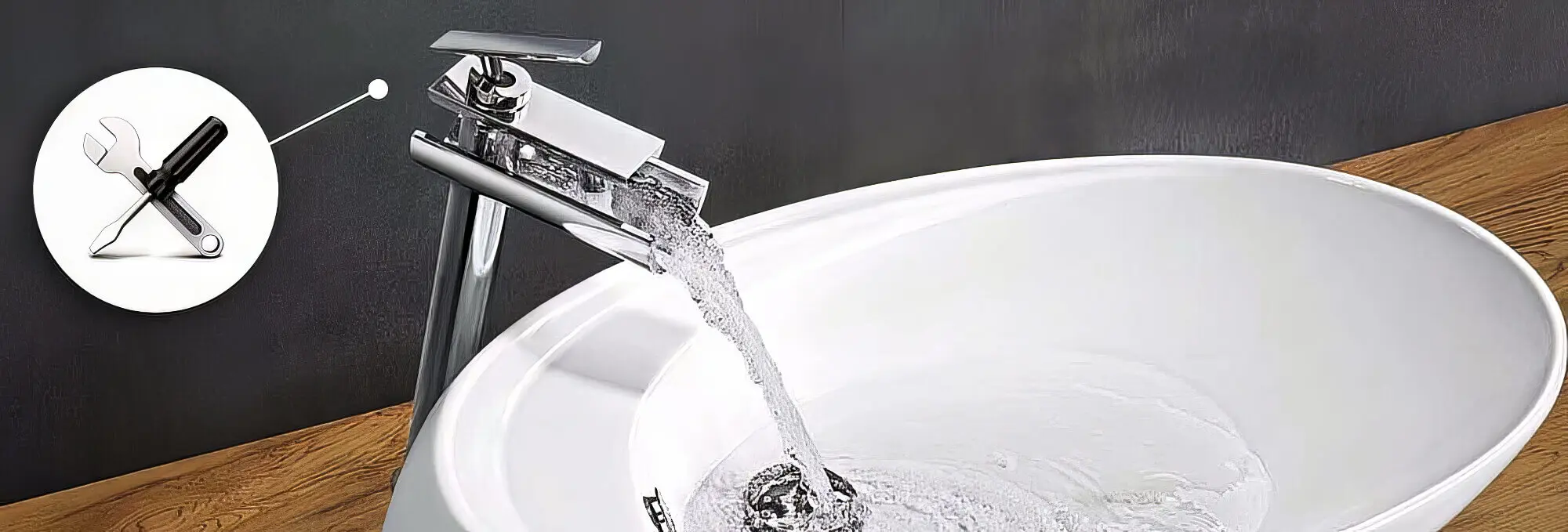
Improper installation of the tap washer is another cause of leaks. Using the wrong size or a faulty washer can also lead to problems. To avoid these issues, it’s best to hire a licensed plumber who has the necessary tools and experience.
Causes of A Leaking Tap
A leaky tap is a common plumbing issue, but you should not leave it unattended. Many severe plumbing issues begin with a minor leak or leaky faucets, so it is best to resolve them immediately.
If you need help with a leaky faucet, contact the folks here at Big Blue Plumbing. We offer upfront rates and ensure no home in Southeast Queensland has unattended plumbing or pipe issues. Hence, our expert technicians provide emergency services 24 hours a week.



